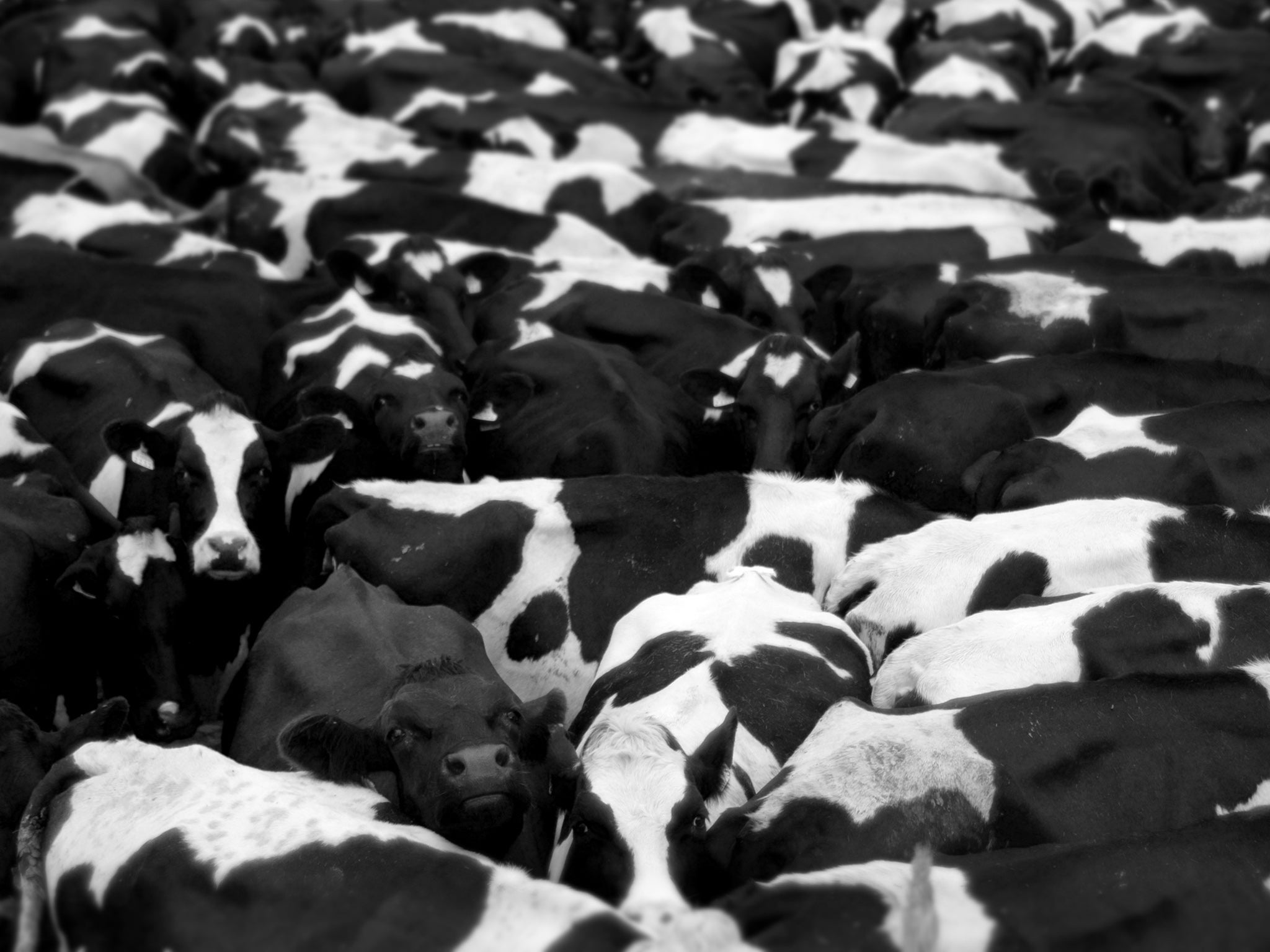How badly could Brexit disrupt agricultural exports from Northern Ireland?
Analysis: Many farmers in Northern Ireland send milk and other produce across the Irish border for processing and re-export. How grave are the potential problems they face? Ben Chu looks at the evidence


Brexit is a potential headache for every sector, not least Northern Irish agriculture, which does a large amount of cross-border business with the republic.
One issue on the minds of those working in the farming sector is: what will happen to UK agricultural produce sent for processing outside the country after Brexit?
Will it still be possible for, say, farmers in Northern Ireland to export milk to the Republic of Ireland, for it to be processed there into milk powder, and then exported again to China with a “produce EU” quality stamp as it is at present?
Or will a no-deal Brexit, in which the UK (including Northern Ireland) leaves the single market and customs union, upset that arrangement and potentially damage this particular industry?
Alan Winters of the UK Trade Policy Observatory says this is likely to be an issue of domestic labelling regulations, both in the EU and China.
It hinges on what the regulations are on “produce EU” certification and whether UK milk dried in Ireland would qualify.
“Is it a substantial enough transformation for it to be a different product? You can see that dried milk quite likely is not because there’s almost nothing to it [the manufacturing process]. It’s quite different from a cake,” he says.
Assuming no tariffs then UK milk from Northern Ireland will continue to be exported to the republic. However, depending on the rules agreed, UK exporters will face some trade facilitation costs, for example... to prove that indeed the milk is from the UK
EU food labelling regulations as laid out on the European Commission’s website state that indication of the country or place of provenance shall be mandatory “where failure to indicate this might mislead the consumer as to the true country of origin or place of provenance of the food”.
EU regulations also state that a non-EU country of origin, which would be the UK after a no-deal Brexit, “must be authorised for introduction of milk and milk products into the EU”.
There’s a related issue known as “rules of origin” in trade.
This is a requirement under various trade agreements that a certain minimum share of manufactured exports must be made up of local parts to qualify for zero tariffs.
Yet Winters says agricultural produce rules of origin will not be the same as those that cover manufactured goods.
“[Labelling on food] is about information and traceability in food stuffs,” he says, rather than necessarily about avoiding tariffs.
His advice for all suppliers and exporters is to check with local customs and the relevant regulatory authorities rather than making any assumptions.
Dr Carmen Hubbard, research leader for The UK in a Changing Europe group, says that another problem potentially facing Northern Irish milk exporters could be new border bureaucracy, even if we ultimately negotiate a free trade deal with the EU.

“Assuming no tariffs then UK milk from Northern Ireland will continue to be exported to the republic. However, depending on the rules agreed, UK exporters will face some trade facilitation costs, for example paperwork at the border, administrative and compliance costs which will be required to prove that indeed the milk is from the UK,” she says.
The future of the agri-food sector certainly matters to many livelihoods on both sides of the Irish border.
Employment in the republic is estimated by InterTradeIreland to be around 230,000, with a figure of 26,000 given for Northern Ireland.
Got an unanswered question about Brexit? Send it to editor@independent.co.uk and we’ll do our best to supply an answer in our Brexit Explained series
Join our commenting forum
Join thought-provoking conversations, follow other Independent readers and see their replies
Comments
Bookmark popover
Removed from bookmarks